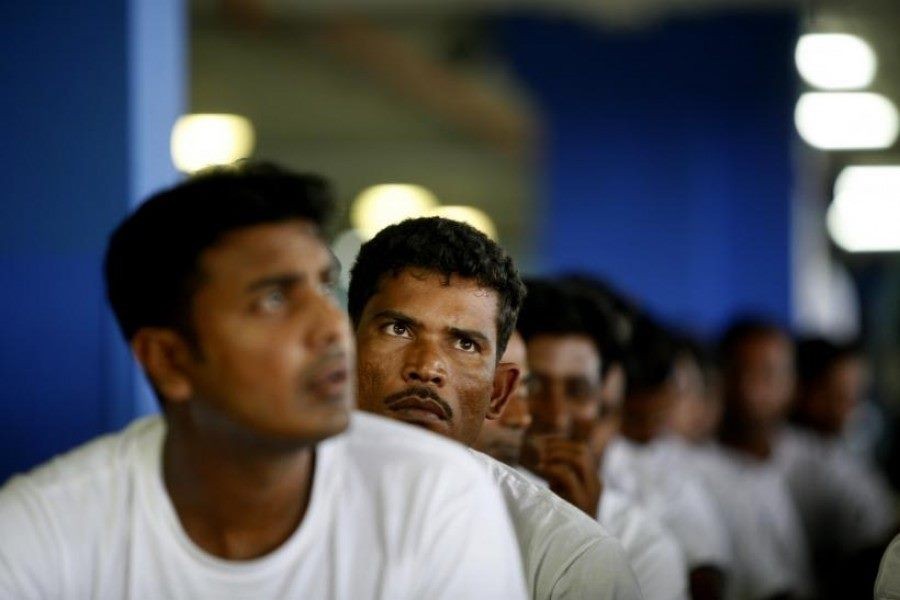Rights groups have called for ensuring a sustainable reintegration of migrant returnees through giving them income-generating scope and psychosocial support.
They also suggest undertaking long-term reintegration projects to achieve a better outcome and that the donors attach importance to this issue.
Rights activists said this at a national consultation styled 'Building Back Better: Lessons Learned on Sustainable Reintegration of Bangladeshi Returnee Migrant Workers' by Ovibashi Karmi Unnyan Program (OKUP) on Tuesday.
OKUP chairperson Shakirul Islam moderated the event.
Although migrants contribute about one third of the national budget, he says, questioning the lesser amount of allocation in the budget for migrants.
Reintegration is not merely economic support, it should be ensured socially too, according to Mr Islam.
He says high migration cost is forcing migrants to work as slaves. Each migrant has to work about 18 months to recover recruitment cost.
Speaking as the chief guest, Anisul Islam Mahmud, chairman of Parliamentary Standing Committee on Expatriates' Welfare and Overseas Employment Ministry, says the nation should appreciate migrant workers' contribution.
The country received $3.0 billion less of remittance in fiscal year 2021-22 than that in the previous fiscal as workers chose unofficial channels for attractive rates.
Mr Mahmud seeks increased incentives to boost remittance inflow.
Lawmaker Nazrul Islam suggests that the budgetary allocation for the expatriates' welfare ministry be properly implemented by officials.
Bureau of Manpower Employment Training director general Shahidul Alam said an estimated 0.9-million Bangladeshis went abroad with work last fiscal.
Some 0.3 million of them might have returned, he added.
To re-engage the returnees, the government has adopted a Tk 4.27-billion reintegration project to give each returnee Tk 13,000 as financial support.
Participants at the open discussion session say health issues remain largely ignored over the years, suggesting that the injured returnees be properly reintegrated at home.
Many migrants are at risk to heatstroke in the Middle-Eastern countries. The workers should be given necessary pre-departure orientation, they assert.


